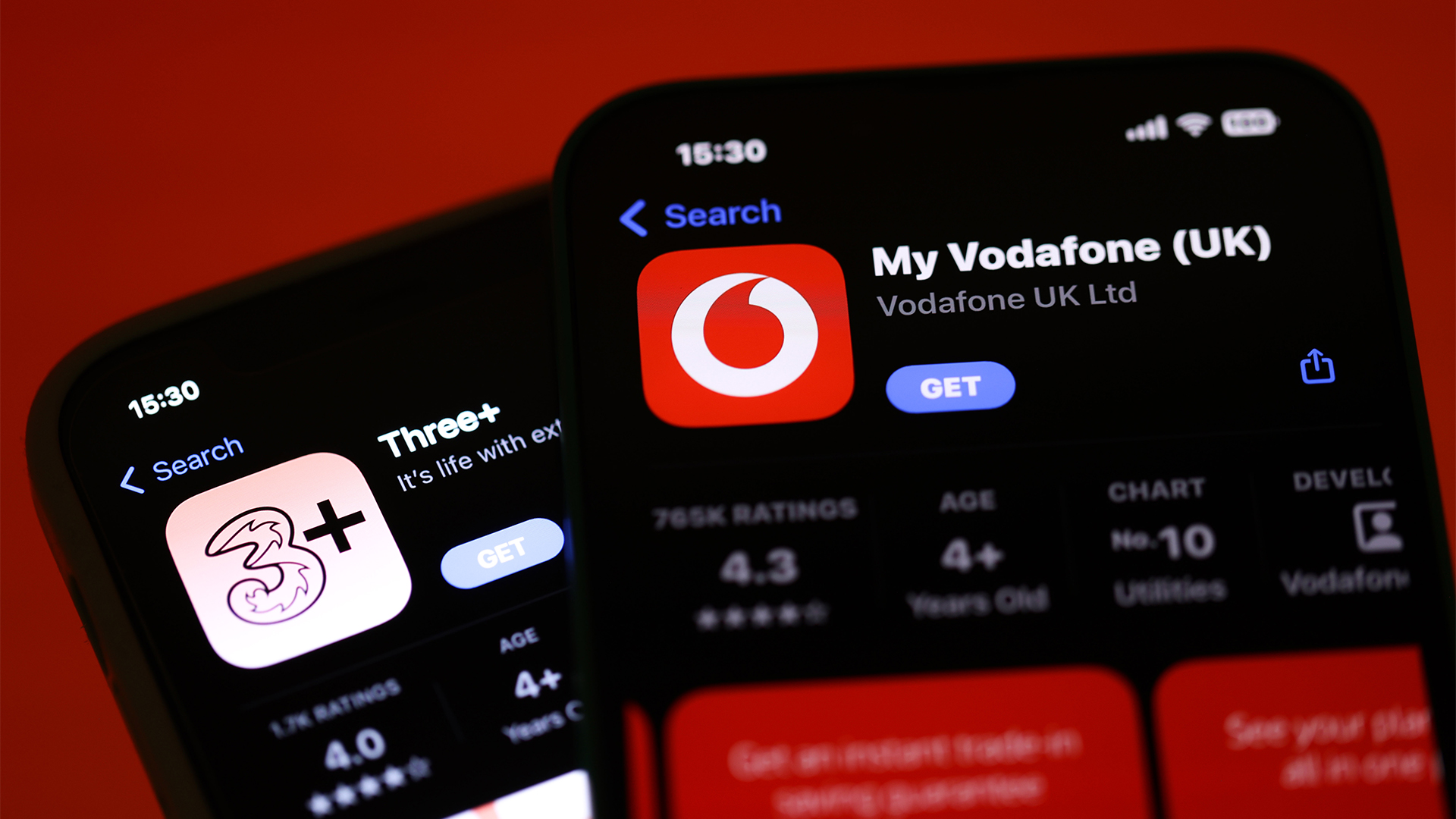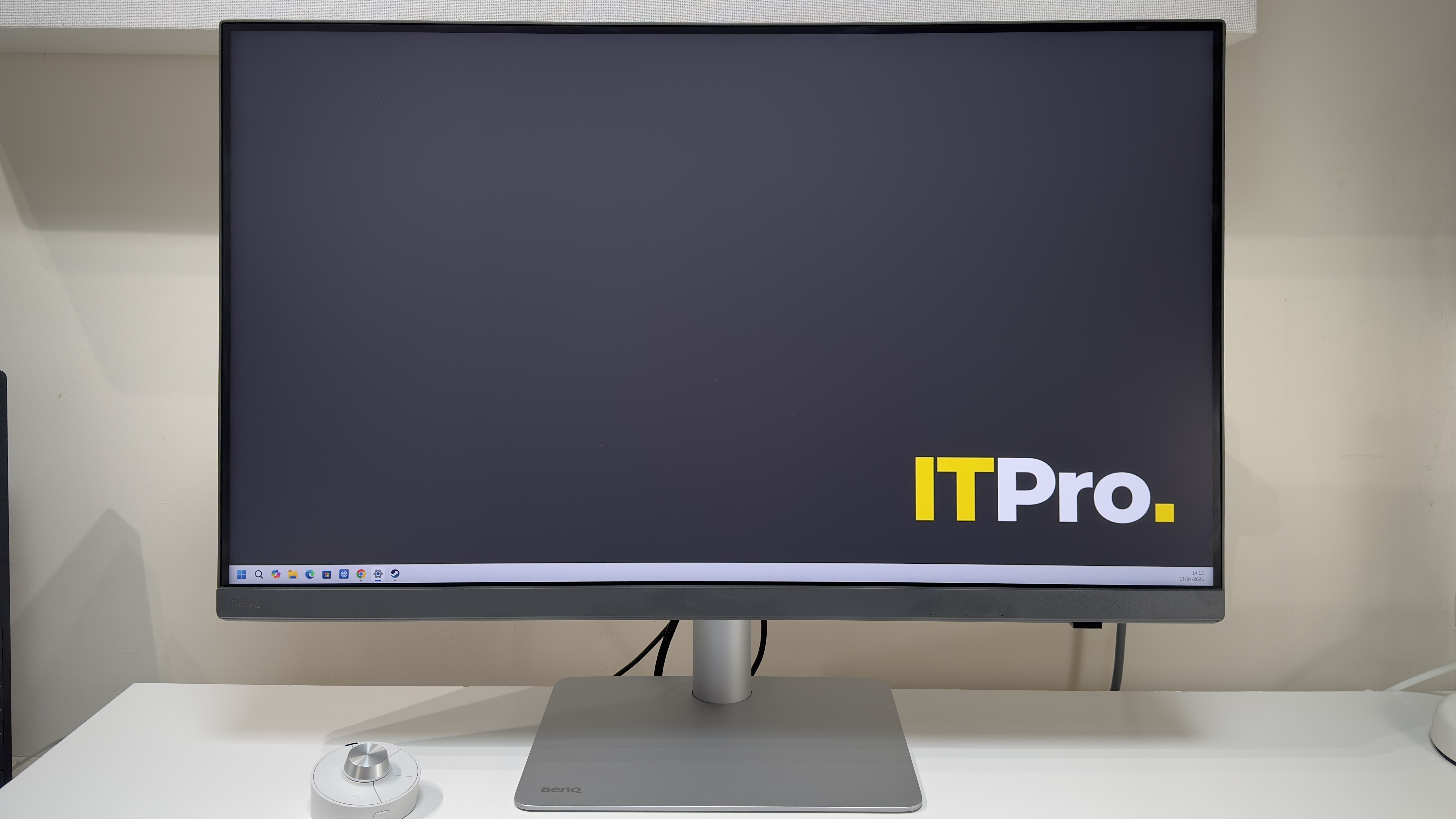Vodafone–Three merger cleared to proceed with commitment to invest heavily in UK 5G rollout
The largest network deal in UK history, worth £16.5 billion, has been given the greenlight


The UK’s competition watchdog has cleared Vodafone’s proposed merger with Three.
The Competition and Markets Authority (CMA) ruled that Vodafone’s merger with Three should be allowed to proceed if both companies sign binding commitment to invest millions to roll out a combined 5G network across the UK.
After an 18-month long deliberation, the £16.5 billion merger will go ahead, constituting the largest UK network deal in history.
In a statement reacting to the CMA’s ruling, Vodafone described the merger as a “once-in-a-generation opportunity to transform the UK’s digital infrastructure”
The two parties, currently the UK’s third and fourth largest network operators, have committed to invest £11 billion to create "one of Europe’s most advanced 5G networks” which it said will reach 99% of the UK population.
Over 50 million customers will benefit from significantly better quality, reliability, and enhanced capacity for handling increasing data demands, Vodafone claimed.
The CMA said the joint network upgrade plan, set to take place over the next eight years, will boost competition between the remaining mobile network operators in the long term.
Get the ITPro daily newsletter
Sign up today and you will receive a free copy of our Future Focus 2025 report - the leading guidance on AI, cybersecurity and other IT challenges as per 700+ senior executives
“It’s crucial this merger doesn’t harm competition, which is why we’ve spent time considering how it could impact the telecoms market,” said Stuart McIntosh, chair of the independent inquiry group leading the investigation.
“Having carefully considered the evidence, as well as the extensive feedback we have received, we believe the merger is likely to boost competition in the UK mobile sector and should be allowed to proceed – but only if Vodafone and Three agree to implement our proposed measures.”
Vodafone chief says deal takes the “handbrake off” UK telecoms industry
Margherita Della Valle, CEO at Vodafone welcomed the decision, declaring it has created “a new force in the UK’s telecoms market”.
“Consumers and businesses will enjoy wider coverage, faster speeds and better-quality connections across the UK, as we build the biggest and best network in our home market,” she claimed.
“Today’s approval releases the handbrake on the UK’s telecoms industry, and the increased investment will power the UK to the forefront of European telecommunications.”
Paolo Pescatore, TMT analyst and founder at PP Foresight, praised the CMA’s diligence when investigating the proposed merger, stating it is now down to Vodafone and Three to hold up their end of the bargain, which should benefit customers.
RELATED WEBINAR

“The CMA has done a thorough job of highly scrutinizing this deal, it’s now up to both parties to deliver on their promises. That should mean wins for UK plc – bringing much needed investment in the network – and for consumers in the form of better services,” Pescatore said.
“Let’s not forget that VMO2 is one the beneficiaries as it will get some of the excess spectrum from the combined merged entity.”
Pescatore added that while the CMA’s decision has been released, there will be a number of hurdles Vodafone and Three will need to negotiate before they and their customers can begin to reap the benefits of the deal.
“A decision may have been made today but it’s still a waiting game. The bottom line is it will take many years before the full merits of the deal are realised, and there’s a lot of tough decisions to come. Merging two networks is no easy feat. While there are past examples with BT/EE and VMO2 to draw upon, it’s not going to be smooth sailing,” he explained.
“Overall, it’s a big deal for both players, arguably even more so for Three given its business model would have been unsustainable in the long term.”
He raised some doubts around the pair’s commitment to upgrade their 5G network in the UK, however, adding that 5G is already widely available and EE remains the clear industry leader.
“Network leadership will make or break the success of the deal. How much of the so-called promises will be spent on actual networks, when 5G is already widely available. For now, EE still remains the benchmark when it comes to network leadership based upon recent developments and on fibre rollout through Openreach.”

Solomon Klappholz is a former staff writer for ITPro and ChannelPro. He has experience writing about the technologies that facilitate industrial manufacturing, which led to him developing a particular interest in cybersecurity, IT regulation, industrial infrastructure applications, and machine learning.
-
 Why are many men in tech blind to the gender divide?
Why are many men in tech blind to the gender divide?In-depth From bias to better recognition, male allies in tech must challenge the status quo to advance gender equality
By Keri Allan
-
 BenQ PD3226G monitor review
BenQ PD3226G monitor reviewReviews This 32-inch monitor aims to provide the best of all possible worlds – 4K resolution, 144Hz refresh rate and pro-class color accuracy – and it mostly succeeds
By Sasha Muller